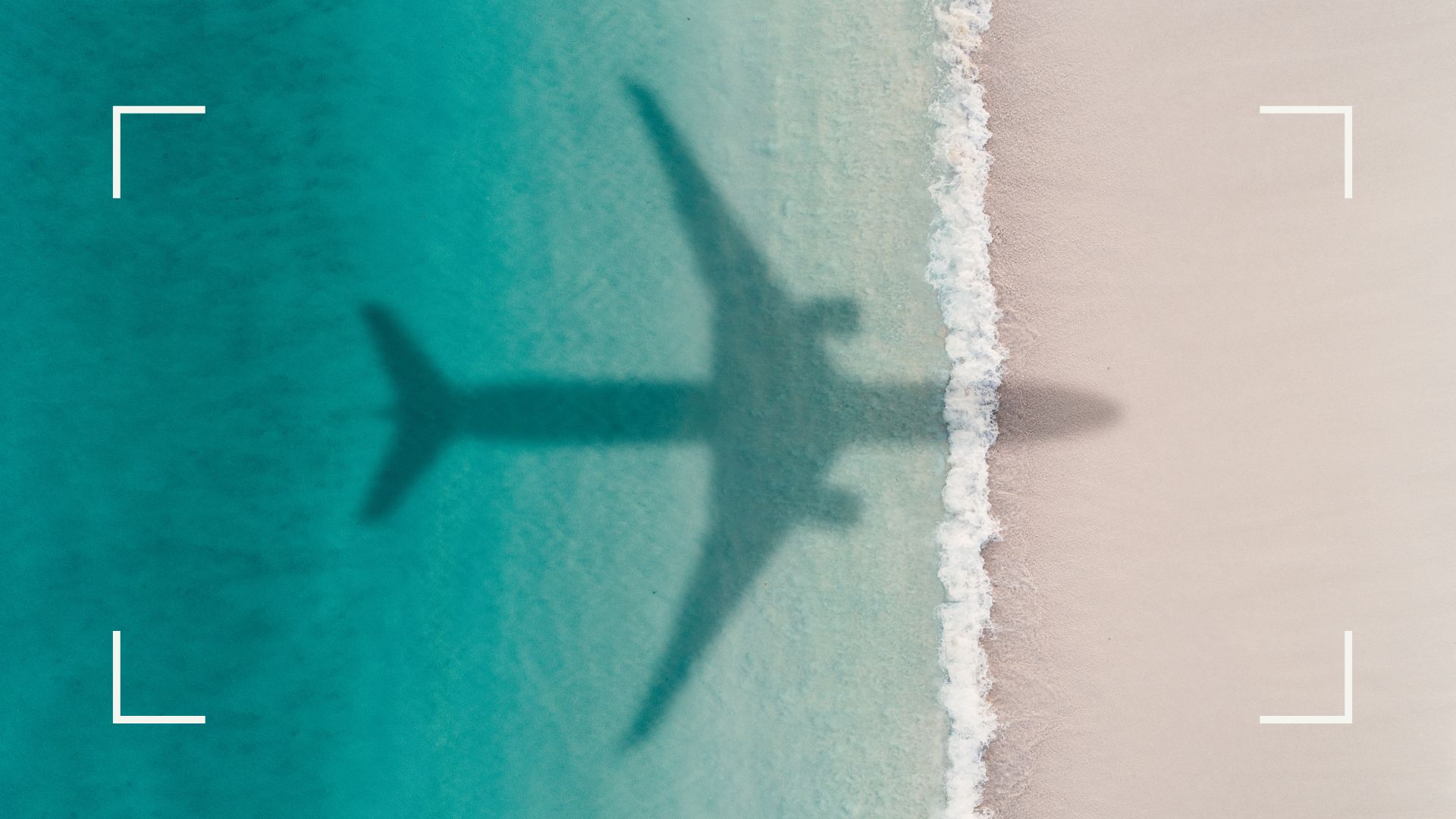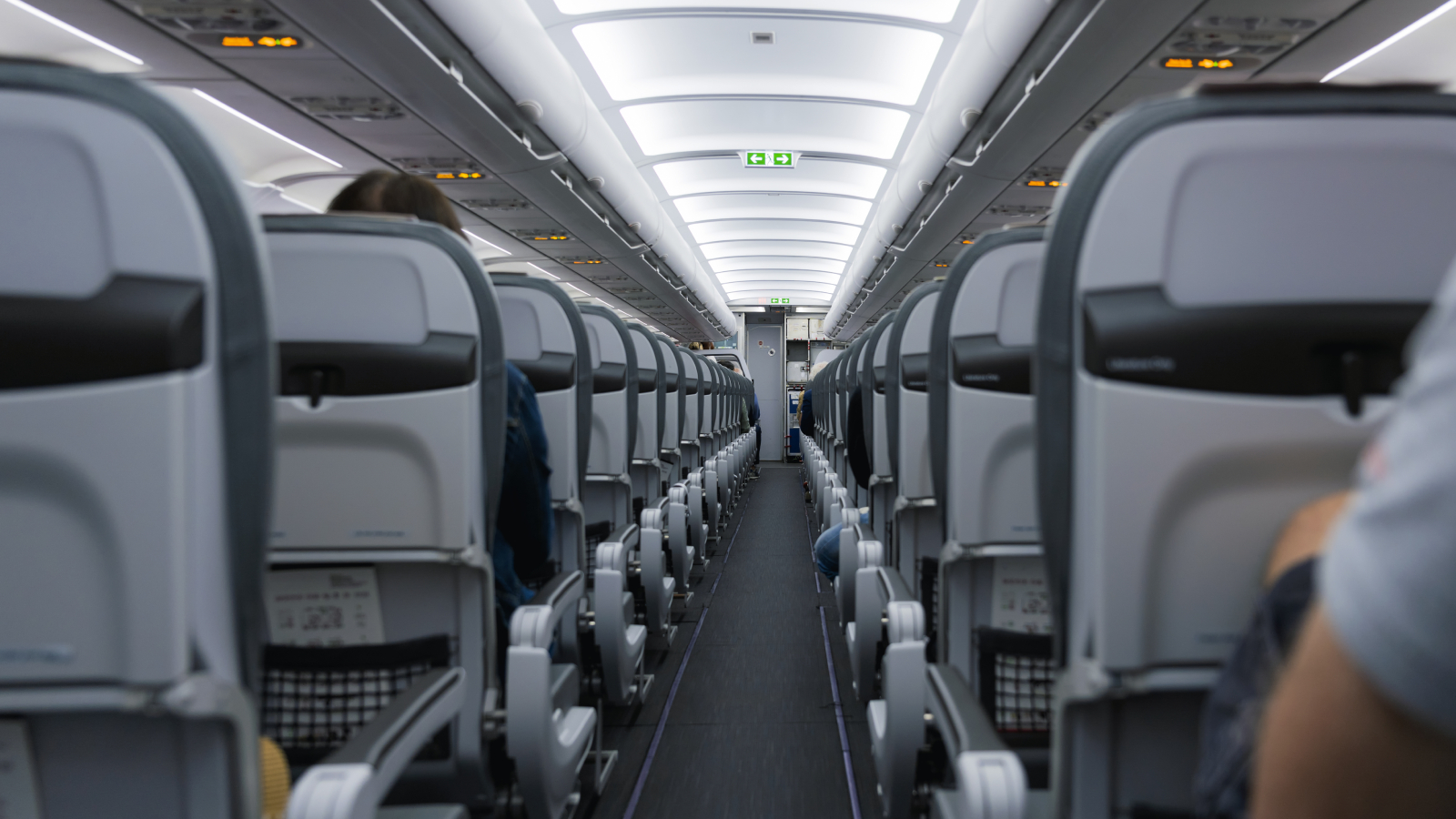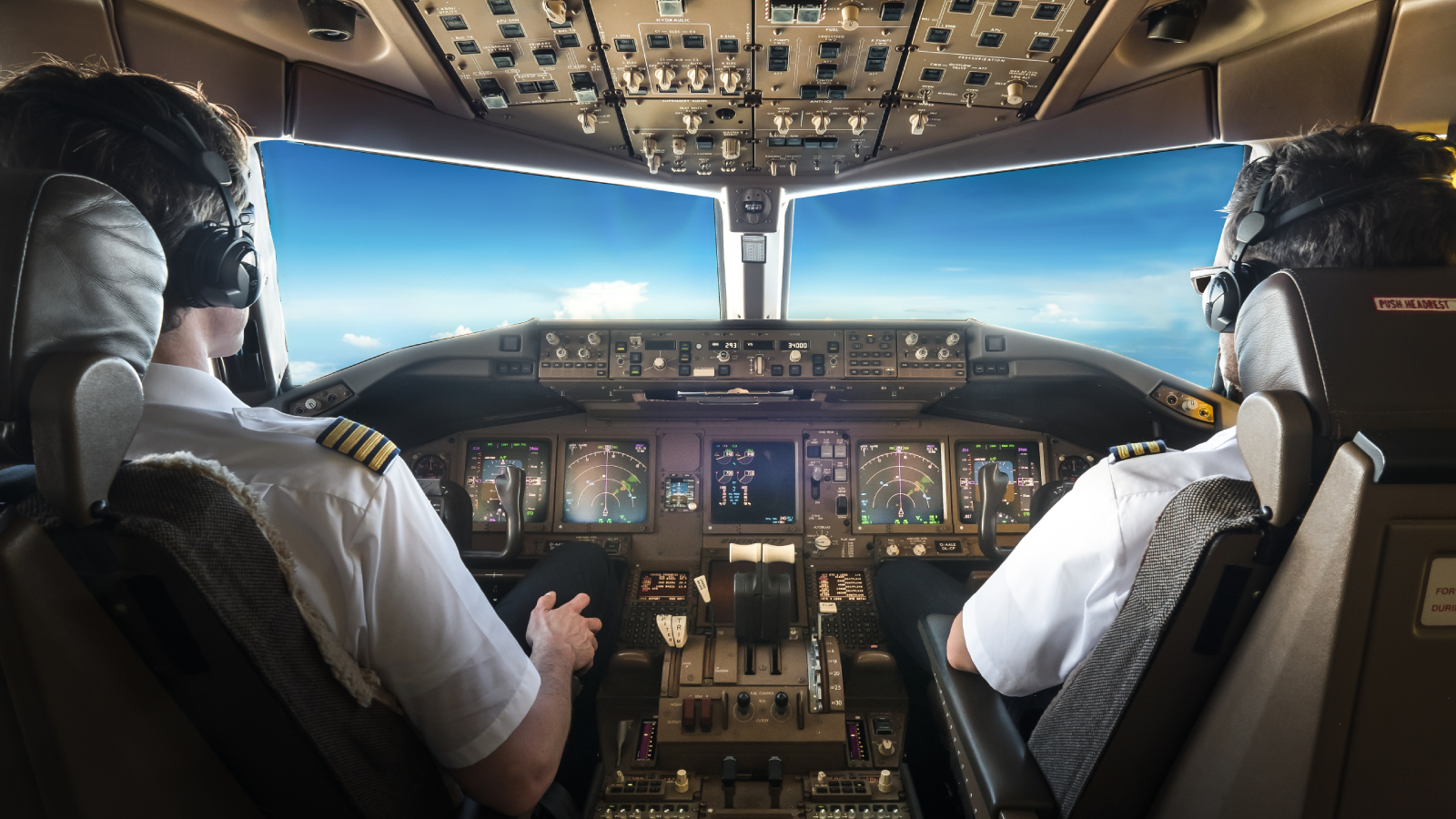How to overcome a fear of flying with the help of experts
A fear of flying can be debilitating - we asked the experts how to overcome a fear of flying and ease travel anxiety...


In order to learn how to overcome a fear of flying, we asked psychologists and behavioral specialists, as well as anxious flyers themselves, for coping mechanisms that will help you stay calm. Fear of flying, also referred to as aerophobia or flight anxiety, is an intense feeling of fear and dread during air travel. Triggers are varied, from fear of a crash or terrorist attack to feeling trapped and claustrophobic, but the effects can be extreme - so much so that some sufferers are put off flying all together.
Airport anxiety is also very much aligned with aerophobia, with many people's panic beginning long before takeoff. The symptoms are similar to those of general anxiety; sweaty palms, an increased heartrate, shortness of breath, tension headaches and, in extreme cases, panic attacks are all typical of someone with flying anxiety.
And it's more common than you may think. "Around 30% of passengers on board tended to be nervous flyers," says former air stewardess Jane Hawker. "Reasons for the fear were numerous; the fear of the unknown, a lack of understanding of how an aircraft operates, concerns about safety, and horror hearsay stories, plus the fact that you feel out of control in a metal tube at 33,000 feet."
If fear of flying is impacting your quality of life and ability to travel without feeling anxious, there are processes that will help you deal with the stress of flying and overcome this common phobia.
Where does a fear of flying stem from?
The origin of fear of flying is complex and often not down to one factor alone. Cognitive behavioral therapist and author of How to Understand and Deal with Social Anxiety, Mita Mistry, explains "Aerophobia can stem from a fear of heights, previous terrible experiences of flying, learnt behavior from anxious parents or can possibly even be passed on through DNA. Sometimes overexposure to films or news stories containing flying disasters can amplify the fear of flying. It’s quite a normal human experience and definitely nothing to be ashamed of."
Abdullah Boulad a psychologist specializing in behavior and founder of The Balance rehab center delves into phobias further. He says, "Phobias can be both irrational and rational. Generally, with fear of flying, the fear of a negative potential experience in the future can manifest as a fear in the present. For most, this is just a learned response to avoid negative experiences and can be overridden by using logic when the reward outweighs the risk. However, patients with phobias cannot override this reaction and often defend their fears fiercely, making it difficult to overcome them without coping mechanisms in place."
For Tamara Martin, her aerophobia stemmed from a fear of heights as a child. "I first realized my fear of flying aged seven, ahead of my first ever family trip to Spain. Prior to this I was super anxious of heights," she told w&h. "During take off, I started to panic and had a fit. I remember being reassured by cabin crew and passengers on our row, but it got worse when my ears began to pop and I felt turbulence. I cried the whole way there and didn't look up the whole flight - my head was down with my hands over my ears. I'd never felt so petrified. It was truly horrendous - I never flew again until I was 29 years old."
Sign up to our free daily email for the latest royal and entertainment news, interesting opinion, expert advice on styling and beauty trends, and no-nonsense guides to the health and wellness questions you want answered.
What triggers aerophobia?
Triggers for flying anxiety are complex and there can be multiple factors at play. "The key to treating it is to understand that not all flying phobia triggers are related to flying, or even the aircraft," Christopher Paul Jones, Harley Street’s official Fear of Flying Expert, and author of the book Face Your Fear Of Flying, explains. "There can be many other triggers, such as claustrophobia, a fear of heights, for example, and the key to curing the fear or phobia is to understand what really at the bottom of it."
Once a passenger begins to panic, the results can be extreme. Former air stewardess Jane explains that, in her experience, "Passengers with an extreme fear of flying have appeared at the aircraft door literally in tears, almost hyperventilating and shaking. Just getting on board can be a challenge in itself."
Common triggers of fear of flying:
- Turbulence
- Anxiety around take-off
- Anxiety around landing
- Fear of terrorism
- Fear of crashes
- Fear of the plane being hacked/taken over
- Claustrophobia
- Social anxiety and fear of crowds
- Fear of heights
- Being far from home
- Lack of control
Symptoms of aerophobia
Recognizing the symptoms of aerophobia can help to tackle the situation before it potentially comes out of control. The symptoms of flying anxiety are similar to the symptoms of anxiety in general, and can vary greatly from person to person.
Common flight anxiety symptoms:
- Dry mouth
- Racing pulse
- Sweating palms
- Racing or negative thoughts
- Irritability
- Dizziness or feeling light headed
- Tension headaches
- Sickness
- Needing the toilet more often
- Heavy breathing
- Restlessness
- Tense muscles
How to overcome a fear of flying

Fear of flying expert Jones suggest that understanding the root cause is the first step to overcome aerophobia through therapy, "Once this is established, flight anxiety can be treated just like any other phobia, through using a combination of contemporary psychological techniques that scramble, and rewind the phobia, and finally replacing the phobia with a more positive thought process."
For Tamara, after a 20-year hiatus from air travel, she found comfort in building up her tolerance with each flight. "I fly regularly now on purpose to help me overcome my fear of flying. Each time I fly, Each experience helpful in combating my phobia. I've learned to make peace with the fact that I'm not in control and it has become easier over time."
In order to overcome a fear of flying, we asked the experts for their tips on what you can do before and during a flight to ease anxiety
1. Challenge negative thoughts
"Challenge negative thoughts. Imagining worst-case scenarios happening, like a crash for example, or terrible turbulence, is really unhelpful. But they are just thoughts, not reality," Mistry explains. The odds of dying in a plane crash are very slim, and it may help to be armed this information before a flight.
A Harvard University study found that the odds of being in an airplane that crashes are one in 1.2 million, while the chance that that the crash will be fatal is one in 11 million. Meanwhile, the chances of dying in a car accident are one in 5,000.
"It’s helpful to keep a perspective by learning the about safety of planes and the science of flying. Watch YouTube videos of planes taking off and landing, listen to the sound of turbulence to get used to the sensations of flying," Mistry suggests.
2. Focus on the outcome of the flight
Positive thought processes can really help here, as Harley Street Fear of Flying Expert Jones explains. "Put your focus on the outcome of the journey", he suggests. "Imagine your self-sitting on the beach enjoying the view rather than imagining your self-scared on a plane." This should help to divert the focus away from fear.
3. Be honest about your feelings
It's important to let those around you know you're feeling nervous, whether that's your travel companions or the cabin crew. Mistry says, "Acknowledge that you are fearful of flying and tell someone. Often people feel like they can’t open up because they will be seen as weak. This couldn’t be further from the truth. If you can name it, you can tame it. And you’re likely to receive support and empathy to overcome it. When you feel less alone and supported, you are more likely to be able to combat your fear of flying and live the life of rich experiences that you deserve."
4. Practice mindfulness before and during the flight
"Try mindfulness before and during the flight to calm your stress response when you feel ready to travel. Doing so will help to ease the body symptoms associated with aerophobia," anxiety expert Mistry explains.
"Travel with somebody you trust and who understands you have this fear. Also, let flight attendants know to. You will be supported and fine." It's important to remember to remember how to breathe properly and calm the nervous system. Sleep-guided meditations can also help you feel relaxed and drift off on long-haul flights. It's important learn how to deal with stress better in the long term too, to keep airport anxiety under control.
5. Try a technique called anchoring
Anchoring is a technique used by Fear of Flying expert Jones in his own clinic. He explains the process: "Start by recalling a time when you felt calm, centered, and at peace (if you cannot think of a specific time, imagine what it would be like to feel this way). Notice what was going on around you - what you were seeing, what you were hearing, what you were saying to yourself, and any smells or tastes that went with it. Notice how you were breathing and how you were sitting or standing.
"Allow yourself to fully re-experience those feelings of calm and peace, and when the feelings are at their peak, squeeze your fist tightly, hold it, and release it just as the feelings start to fade."
6. Speak to the pilot

Speaking to the person that controls the plane is a way to seek reassurance. Jane says of her experience as an air stewardess, "Sadly, since 9/11, visits to the flight deck are rare but they are still possible before departure and post landing.
"Some passengers can be reassured when given explanations by the pilots as to what happens and when, what to expect and common noises to listen out for, which are no reason for alarm. It’s also an invaluable opportunity to ask questions for reassurance and peace of mind."
7. Enlist the help of the cabin crew
Remember that the cabin crew are also there to help and calm nerves during a flight. "Crew are not given any specific training to deal with fear of flying, but they have an intuitive response, know how to deal with a variety of people, are very experienced in supporting nervous flyers and are able to use these skills to help passengers relax in their care," Jane continued.
8. Think about seeking professional help
"All phobias have mitigating techniques that can, through the help of a trained therapist, be learned to calm the mind and allow the patient to not be so reactive to their fears," fear of flying expert Jones explains. "These can range from breathing techniques, visualizations, and other calming methods."
When to seek professional help for fear of flying
If coping mechanisms fail to work, there may come a time when you need to seek professional help. Psychologist Boulad suggests, "If someone feels as though a fear is stopping them from living a fulfilled life or there is a recognition that a fear has become unreasonable or excessive, stops you from visiting particular places or situations or someone has had for over six months, then it might be time to find a specialist who can help with these issues."
There are plenty of options out there if you want to seek professional help to overcome fear of flying. "Cognitive Behavioral Therapy (CBT) is very effective for disproving negative thought patterns to treat aerophobia," Mistry advises.
"Hypnotherapy and exposure therapy where you gradually get used to the experience of flying with the help of a therapist. There are also medications for anxiety, which can help manage symptoms in preparation to fly and during the flight."
Lauren is the former Deputy Digital Editor at woman&home and became a journalist mainly because she enjoys being nosy. With a background in features journalism, Lauren worked on the woman&home brand for four years before going freelance. Before woman&home Lauren worked across a variety of women's lifestyle titles, including GoodTo, Woman's Own, and Woman magazine.
